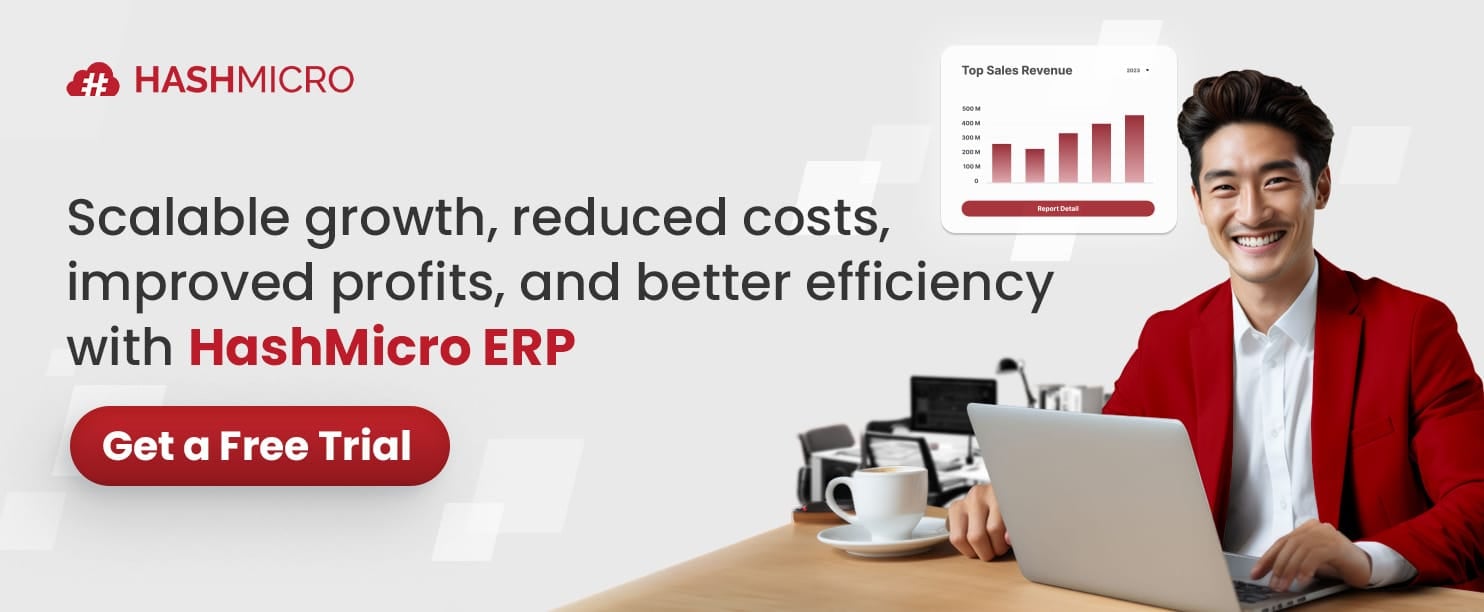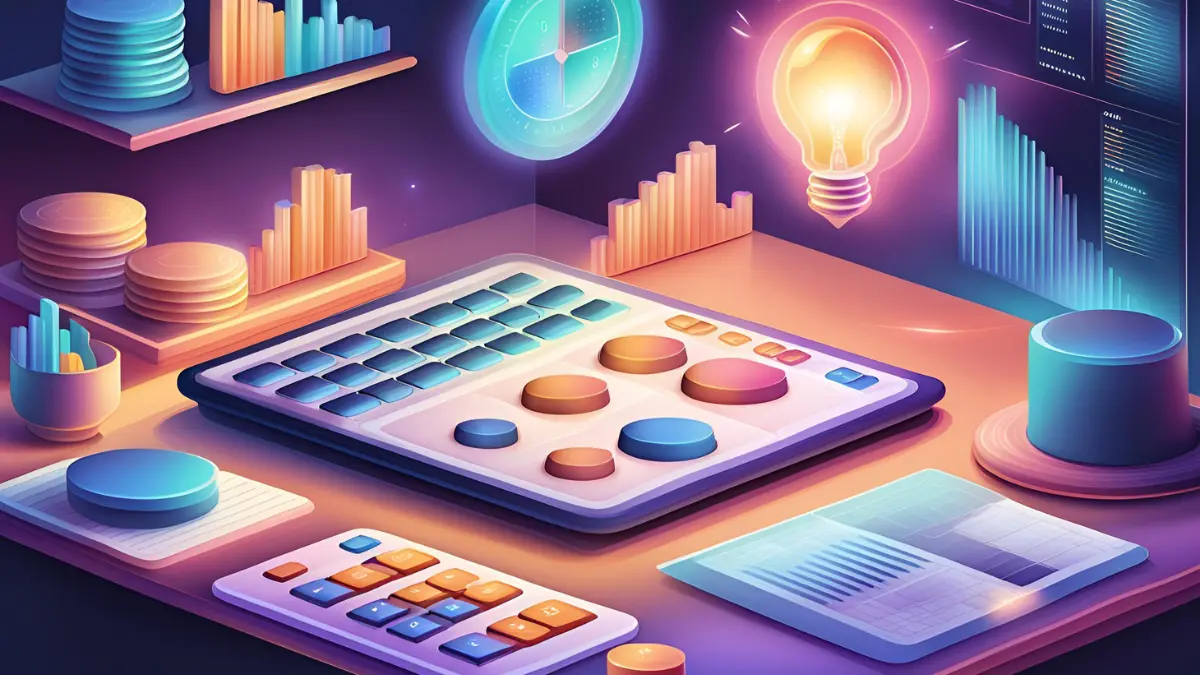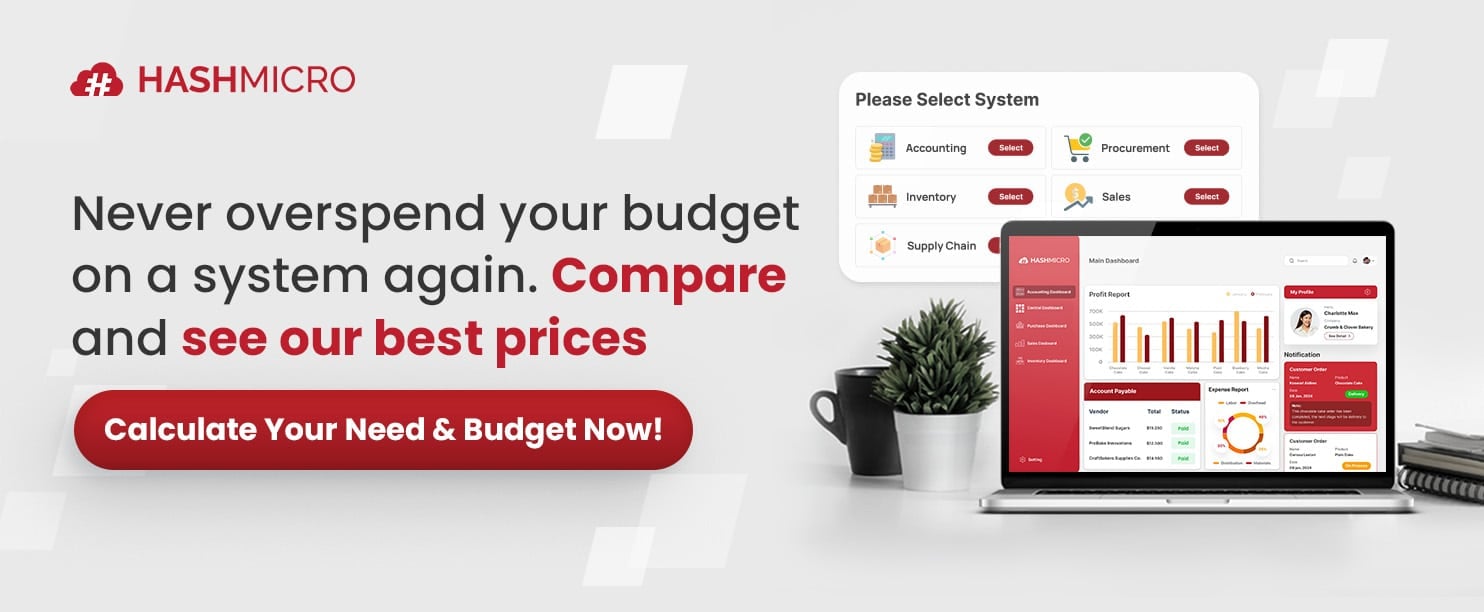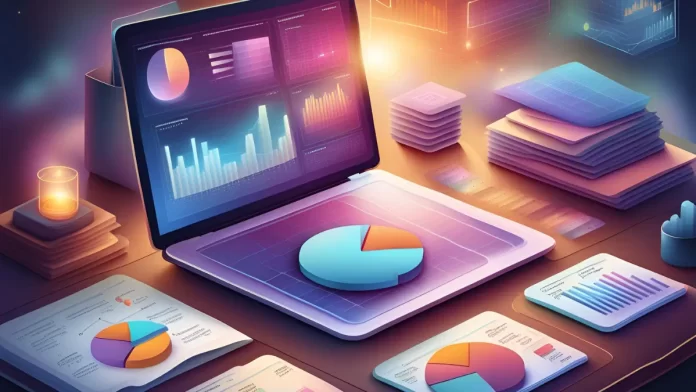When managing your business’s financials, you can choose between ERP (Enterprise Resource Planning) systems and accounting software. Accounting software like HashMicro focuses on financial transactions, bookkeeping, and tax management.
ERP systems go beyond financial tasks, covering supply chain management, inventory, customer relationship management, HR, and more. They offer integrated tools, centralized databases, and advanced reporting for better coordination across departments.
The main difference is scope accounting software handles financial management, while ERP systems provide comprehensive solutions for multiple business functions. This makes ERP ideal for businesses in Malaysia seeking streamlined operations. The following sections will explore their benefits, differences, and future trends to help you decide which suits your business best.
Key Takeaways
|
Table of Content
Content Lists

Benefits of ERP Over Accounting Software
ERP Software offers significant advantages over traditional accounting software for managing your business. With integrated tools, including financial reporting software, ERP provides a centralized database, ensuring accurate data and enabling better decision-making through advanced reporting and analytics.
ERP systems streamline operations and enhance collaboration by automating core processes across departments. This integration covering inventory management, procurement, manufacturing, and CRM improves workflow management and team coordination.
Additionally, ERP solutions offer scalability, transparency, and operational efficiency, making them suitable for businesses of all sizes in Malaysia. By choosing ERP software, companies can adapt to changing business needs, support growth, and gain a competitive edge in the market.
Overall, the benefits of ERP over accounting software are clear. It offers a comprehensive approach to managing your business processes, providing you with a complete view of your operations and enabling you to make informed decisions. Whether you’re a small business or a large enterprise, implementing an ERP solution can transform the way you operate and help you achieve your business goals.
Choosing Between ERP and Accounting Software

When choosing between ERP and accounting software for your business, it’s essential to evaluate your specific needs and requirements. Accounting software is ideal for small businesses with basic financial management needs, offering an affordable and easy-to-use solution. However, its functionality and scalability are limited as your business expands.
In contrast, an ERP system is better suited for businesses needing integrated and comprehensive solutions to manage various processes. Beyond financial management, ERP software includes features like inventory management, supply chain management, customer relationship management, and more. This makes it a scalable and flexible option that adapts to your business’s evolving needs.
When deciding between ERP and accounting software, consider your business’s size, complexity, industry requirements, scalability, and growth potential. While accounting software may work for smaller businesses with straightforward needs, an ERP system provides the advanced functionality required by larger, more complex organizations.
For more information about ERP systems or accounting software tailored to your business needs in Malaysia, click on the banner below to explore HashMicro’s software pricing scheme.

The Differences Between ERP and Accounting Software
When comparing ERP (Enterprise Resource Planning) and accounting software, it is important to understand their differences in scope and capabilities. While both support financial management, ERP software offers a more comprehensive solution that covers various business functions, including financial management, supply chain, customer relationship management, production, HR, and more. It also integrates with business process management software to optimize workflows and improve efficiency.
Accounting software, on the other hand, focuses on financial transactions, bookkeeping, and basic financial reporting. It manages day-to-day financial tasks and provides an overview of a company’s financial health. For example, if you run a construction business in Malaysia and need help managing finances manually, construction-specific accounting software can streamline these tasks.
A key difference is ERP’s integration tools, which connect processes across departments, providing a centralized view of operations. This enables real-time decision-making and better collaboration. ERP systems also use a centralized database for comprehensive data management, while accounting software relies on a smaller, stand-alone database.
Although accounting software is more affordable and easier to use, it lacks the scalability and advanced features of ERP systems and business process management software. This makes ERP a better choice for businesses in Malaysia looking to grow and improve operational efficiency.
Conclusion
As technology advances, the future of ERP and accounting software in Malaysia continues to evolve. While accounting software has traditionally been popular among small and mid-sized businesses, there is a growing demand for ERP solutions that combine accounting and operational functionalities, supporting business process reengineering.
ERP systems offer comprehensive features and significant advantages, making them increasingly popular. One major benefit is real-time data access, which allows businesses to make quick, informed decisions. Additionally, ERP solutions provide mobility, enabling users to access critical information anytime and anywhere, which is an essential feature in today’s dynamic business environment.
For businesses looking to integrate accounting software with a complete ERP system and enhance business process reengineering, HashMicro provides a robust solution tailored to your needs. Try the free demo now!

FAQ ERP vs Accounting
-
Is ERP the same as accounting system?
The key difference between these two systems is that an ERP system covers many aspects of company operations, while accounting software focuses solely on financial management. As a result, accounting software tends to be less expensive than ERP software.
-
Do accountants use the ERP system?
Accountants will benefit from an ERP by using integrated data to streamline all of their accounting processes. ERPs will speed up all accounting and financial management processes, not only saving you time (and money) but also allowing you to make faster and better decisions about your business.
-
Is ERP a growing industry?
The global ERP software market size was estimated at USD 64.83 billion in 2024 and is anticipated to grow at a CAGR of 11.7% from 2025 to 2030. The increasing demand for data-driven decision-making and streamlined operations across various industries drive market growth.




































